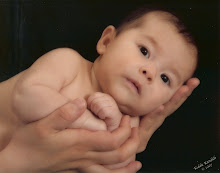Rise of the clean freaks
Rise of the clean freaksBy Clair Weaver
March 15, 2009 12:00am
IS obsessing about cleanliness causing disease instead of preventing it?
Every day we are bombarded with advertisements for anti-bacterial products that promise to kill 99.9 per cent of germs.Perky TV mums reassure us these sprays, gels and wipes will keep our homes sparkling clean and protect our families from harmful bugs.Because no one wants to be exposed to nasty germs, right? It may not, however, be that simple. Scientists are concerned that our 21st-century obsession with cleanliness may be backfiring.Allergies and auto-immune disorders are on the rise among Australians. Meanwhile, new breeds of uber-bacteria that are resistant to disinfectants and drugs are emerging. Hygiene hypothesisThe issue was thrust under the international spotlight early this year when Hollywood actor John Travolta’s 16-year-old son Jett died after suffering a seizure.Travolta believes the regular use of carpet cleaner, when Jett was a toddler, caused his son’s immune system to over-react, resulting in the rare inflammatory disorder Kawasaki syndrome.However, the link is unproven and Kawasaki syndrome usually clears up within a three to four weeks of treatment, rarely affecting children over the age of eight.One explanation for the growth in allergies that is gaining acceptance by many experts is the “hygiene hypothesis”.The logic is simple: we are so hygienic we aren’t being exposed to the same level or variety of bacteria as in the past, so our immune systems are unable to build up defences.When an everyday irritant comes along, our bodies have an allergic over-reaction rather than taking it in their stride.Good and bad bacteriaResearch shows children born into farming families have lower rates of allergies than their city counterparts, who tend to live in more protected and disinfected homes.Likewise, those who grow up with pets, in large families or attending childcare, appear to have more robust natural defences. Associate Professor Mimi Tang, director of allergy and immunology at the Royal Children’s Hospital in Melbourne, says the hygiene hypothesis is considered increasingly credible in the scientific community.“It’s the most popular theory on why allergies have risen so much,’’ she says.“It explains both the rise in allergies and auto-immune disorders.”Auto-immune disorders becoming more prevalent include Type 1 diabetes, Crohn’s disease and multiple sclerosis.In each of these diseases, sufferers’ immune systems attack the body’s own cells.So what can we do to cut our risk?The Victorian Government advocates a simple “soap and water” approach to hygiene through its Better Health Channel website.Professor Tang also believes mothers may hold part of the key to prevention before their babies are even born.While genetics play a role in determining susceptibility, bacterial exposure during pregnancy may also be important.“The first bacteria that colonise the gut in babies are thought to be essential in establishing immunity,” she says. She believes expectant women can pass good bacteria to their babies and is leading a study comparing eczema rates in babies born to women who are given a probiotic during pregnancy to those given a placebo.Babies with eczema have been found to have fewer “good” bacteria and higher levels of “bad” bacteria in their gut. Asthma is another disease that is closely linked to allergies.Kristina Croxford, education and training manager at the Asthma Foundation of Western Australia, says the biggest risk factor is family history. “Different allergens can trigger asthma, such as pollens, dust mites, pet dander and moulds,’’ she says.“But if your asthma is not triggered by a particular allergen there is no need to avoid it.” We should, it seems, be a bit more relaxed about hygiene and avoid wrapping the next generation in a bubble of disinfected cotton wool. “I think it was necessary to improve our community hygiene levels so we weren’t all dying of typhoid and cholera in the street,” Professor Tang says.
Saturday, May 2, 2009
Subscribe to:
Post Comments (Atom)




































No comments:
Post a Comment